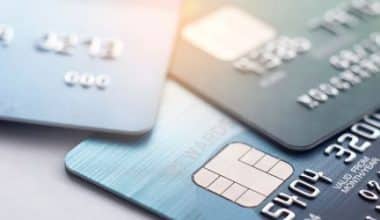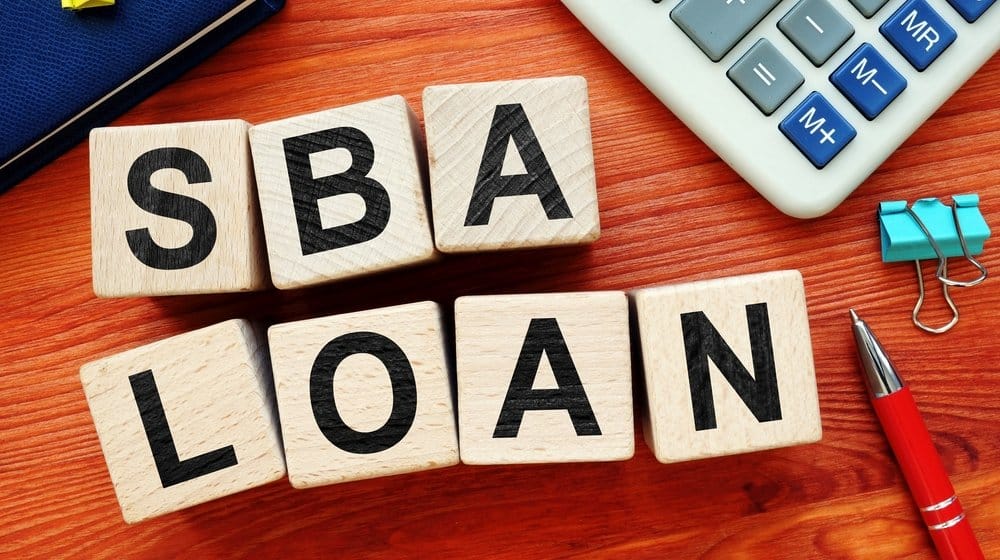Do you ever find yourself spending too much money on things that you don’t need? We’ve all been there. Whether it’s a new pair of shoes or a last-minute dinner out, it’s easy to get caught up in the moment and make an impulse purchase. But if you’re looking to save money, it’s important to be mindful of your spending and make sure you’re only spending money on things that you actually need. In this blog post, we’ll discuss tips on how to stop spending money on unnecessary things, as well as how to stop spending money on food and other items, setting a savings goal, and strategies for reaching your savings goal. So if you’re looking for ways to save money, keep reading!
Identifying Unnecessary Spending
The first step to stopping unnecessary spending is to identify what kind of spending you should avoid. Unnecessary spending is any money spent on things that you don’t really need. This could be anything from going out to eat every night, to buying clothes that you don’t really need.
To identify your own unnecessary spending, it’s important to keep track of your expenses. Start by writing down everything that you spend money on in a week. Once you have a list of your expenses, you can start to identify the areas where you’re spending too much money. This will help you to cut back on your spending and save money.
Reasons You Can’t Stop Spending Money
Money, whether we like it or not, makes the world go round. We spend money for a variety of reasons, and if we’re honest with ourselves, a lot of those reasons may be attributed to how we feel at the time. And this is where it becomes dangerous—and can lead to overspending.
When it comes to spending money, here are five major culprits to watch out for:
#1. Use of social media
Social media, ah, social media. I both despise and adore social media. Consider this: It’s Saturday morning, and you find yourself looking through your social media account to see what your friends are up to. You’ve been inundated with someone’s LIKEtoKNOW.it page and that new, life-changing kimono in less than two swipes. And before your feet have even touched the ground, you’ve spent $30, and your life feels complete… for the time being.
If you’re being honest, you probably didn’t have to think about it too much because you did it this morning. We all want what we don’t have, let’s face it. And we desire it because we believe it will make our lives better.
However, social media intensifies the comparison game. Your friend’s post about their beautiful couch with the perfect toss pillows makes your couch look like it was found on the side of the road. And that prominent blogger’s post about the amazing all-inclusive resort she visited makes your previous family vacation look like a bad trip to the state fair. When does it come to an end?
It doesn’t, believe it or not. All of these things deplete your budget, detract from your long-term financial goals, and take your joy.
#2. Failure to Keep Track of Your Spending
You’ll never be in control of your money if you don’t track your spending, no matter how much (or how little) you earn. In reality, you’ll always have the impression that your money owns you.
Listen, living paycheck to paycheck is a nightmare. And if you’re constantly wondering where all your hard-earned money goes each month, it’s time to start tracking it… with a budget!.
#3. Shopping to Make You Feel Better
Some people joke about spending money like a shopaholic, but compulsive spending, sometimes known as retail therapy, is a real issue.
The issue for most of us is spending money on impulse just because we want it immediately. We see something and buy it before we evaluate what’s in our bank account (or before considering our financial goals, for that matter). Instant satisfaction isn’t always what it appears to be. It doesn’t help you feel any better… especially when your bank account is decreasing right before your eyes.
#4. Inadequate Self-Awareness
Gaining self-awareness is the one thing that has made the biggest difference in my money perspective. If I don’t keep learning about myself and being conscious of my money habits (which I call dependencies), it will be all too easy for an old habit or an “easy” out to come in and sabotage my progress.
You must know yourself well enough to recognize what may tempt you and what you should avoid. Are you predisposed to be a spender or a saver? Do you consider yourself a nerd or a free spirit? Do you prioritize safety or status? Take my free survey to find out why you handle money the way you do and how to permanently eliminate harmful money habits.
#5. Using Plastic to Pay
You may not have realized it, but you probably spend more money when you pay with plastic, whether it’s a credit card (who doesn’t like purchasing with someone else’s money?) or a debit card. Consider this: When you shop with plastic, it’s easy to overspend since you can’t see the money leave your hand.
However, when you spend cash, you feel it. It aches when those crisp (or wadded-up) green bills go from your grasp. Something inside you shivers. You had money just seconds before, and now? No, you don’t. So, the next time you make a purchase, pay in cash to see what I mean.
The good news is that you can overcome these spending patterns with some forethought, self-awareness, and long-term thinking.
Strategies To Stop Spending Money Unnecessarily
Once you’ve identified the areas where you’re spending too much money, it’s time to start implementing strategies for stopping your unnecessary spending. Here are a few tips for reducing your spending:
- Set a budget and stick to it. Make sure you know how much you can afford to spend each month, and then stick to that budget.
- Make lists before you shop. Make a list of the things you need before you go shopping, and then stick to that list. This will help you avoid making impulse purchases.
- Avoid temptation. Unsubscribe from email lists of stores that you frequently shop at, and avoid browsing through their websites. This will help you to stay focused on what you need and avoid unnecessary spending.
- Wait 24 hours before making a purchase. If you’re tempted to buy something, wait 24 hours before making the purchase. This will give you time to think it over and decide if it’s really something you need.
Tips for Stopping Spending on Food
Food is one of the biggest areas where people can end up spending too much money. Here are a few tips for reducing your spending on food:
- Meal plan. Meal planning is a great way to save money on food. Make a list of the meals you’re going to make for the week, and then create a grocery list of the ingredients you need for each meal. This will help you to avoid buying too much food, and it will also help you to save money by only buying the ingredients you need.
- Cook at home. Eating out can be expensive, so try to cook at home as much as possible. You’ll save money and you’ll also be able to control what ingredients you use, so you can make healthier choices.
- Avoid food waste. Buy only what you need and make sure to store food properly to avoid food waste. This will help you to save money and also help you to be more sustainable.
Tips for Stopping Spending on Other Items
In addition to food, there are other items that can be expensive. Here are a few tips for reducing your spending on other items:
- Shop around. Before making a purchase, shop around for the best price. This will help you to find the best deal and save money.
- Buy used. Buying used items is a great way to save money. You can find great deals on items like furniture, clothes, and home goods at thrift stores and online marketplaces.
- Wait for sales. If you’re not in a rush to make a purchase, wait for a sale. Many stores have sales throughout the year, so take advantage of them and save money.
Setting a Savings Goal
Once you’ve implemented strategies for reducing your spending, it’s time to set a savings goal. Decide how much money you want to save each month and make a plan for achieving that goal. This will help you to stay motivated and on track.
Think about what you want to save for. Do you want to save for a vacation, a new car, or a down payment on a house? Having a specific goal in mind will help you stay focused and motivated.
Strategies for Reaching Your Savings Goal
Once you’ve set a savings goal, it’s time to start implementing strategies for reaching that goal. Here are a few tips for reaching your savings goal:
- Automate your savings. Set up an automatic transfer from your checking account to your savings account each month. This will help you save money without having to think about it.
- Track your progress. Keep track of your savings, so you can see how much you’ve saved and how close you are to reaching your goal.
- Cut back on unnecessary expenses. Spend only on the things that you need, and cut back on the things that you don’t. This will help you save money and reach your goal faster.
Benefits of Saving Money
Saving money can have many benefits. Not only will it help you reach your goals faster, but it can also give you peace of mind. When you have a financial cushion, it can help you feel more secure and less stressed.
Saving money can also help you plan for the future. You can use your savings to purchase big items like a car or a home, or to pay for unexpected expenses. Having a savings account can also help you prepare for retirement and other long-term goals.
Resources to Help You Save Money
If you’re looking for additional resources to help you save money, there are plenty of options available. Here are a few resources to check out:
- Financial advisors: A financial advisor can help you create a budget and develop a plan for saving money.
- Apps: There are a variety of apps available that can help you track your spending and save money.
- Online courses: There are many online courses available that can teach you the basics of budgeting and saving money.
Conclusion
Saving money doesn’t have to be hard. With a few simple strategies, you can start to save money and reach your financial goals. Start by identifying areas where you’re spending too much money, and then implement strategies for reducing your spending. Keep track of your progress, and use resources like financial advisors, apps, and online courses to help you reach your savings goal.
If you’re looking for ways to stop spending money on unnecessary things, follow the tips in this blog post. You’ll be on your way to financial freedom in no time.
Now that you know how to stop spending money on unnecessary things, why not take the next step and start saving today? With a few simple strategies and a bit of discipline, you’ll be on your way to financial freedom in no time.
Related Articles
- Paypal Transaction Fees: What are The Transaction and How to Avoid The Unnecessary Fees
- HOW TO MAKE MONEY WORK FOR YOU: Easy Ways to Make Your Money Work for You
- Creating Family Budget: Easy Template
- PERSONAL FINANCIAL MANAGEMENT: Guide to Personal Financial Management
- Easy market development strategy in 2023 (+ quick guide)






